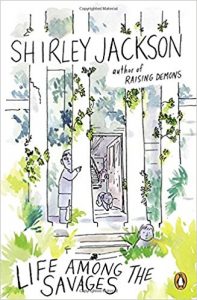Everybody knows what a list is, right? Wrong. Many’s the time I’ve sat down to edit an article or memoir for a friend or client – only to discover that I was actually reading a list. Not fun, and not what the writer was trying to do.
It’s easy to be fooled, especially when you’re the writer. You think your piece sparkles. It’s charming and lively. It couldn’t possibly be a list, right?
Wrong.
If the piece you’ve written doesn’t make a point, chances are it’s a list. An essay about a visit to Costa Rica might actually be a list. So could an account of your family reunion last summer, or an examination of the pros and cons of small-ship cruising. If what you’ve written doesn’t make a point – if it just stacks up a series of events or facts – it’s probably best described as a list.
So what constitutes a point? It’s an idea with an attitude. “My trip to Canada” isn’t a point. “I was amazed by the wildlife in Canada” is.
Your point doesn’t have to be a lesson. In fact often you’re better off if you’re not trying to convince your readers that you’re passing on age-old wisdom. It’s hard to pull off that kind of writing without sounding stodgy and superior.
I remember a conversation I overheard once between two young mothers – “Carol” and “Betty.” Carol had a six-month-old infant, and she was asking Betty – who had four children – to share the best parenting advice she’d ever heard.
Betty was thoughtful for a moment. And then she said, “Always make your children sit down while they’re eating something messy. Especially chocolate.”
Not profound – but you get a feeling for the kind of mother Betty is. She sounds real. And that’s what you want your writing to do – and what won’t happen if you recount, in order, the 15 places you visited on your last visit to Chicago. (I’m going to add some practical advice of my own: If you have a sinking suspicion that you’ve written a list, you probably have.)
Lists have been on my mind this week because I’ve been reading a wonderful new biography of one of my favorite writers – Shirley Jackson. In an earlier post I remarked that I’d read Jackson’s memoirs Life Among the Savages and Raising Demons over and over. She was a writer, not a list-maker.
Jackson enjoyed motherhood and was fascinated by her children – which doesn’t mean that she went on and on about what a good mother she was. I don’t think there’s a single piece of parenting advice in either of those books. Often she’s looking wryly at either her own foibles as a mother or the odd behavior of her children.
There’s Jannie, for example, who had a string of imaginary friends, all named Marilyn. And Sally, who was a practitioner of magic. There’s also Barry, who insisted on having a fried egg for dessert every night while everyone else had chocolate pudding, and Laurie, who – after recovering from a serious accident – insisted on taking another ride in an ambulance because he’d been unconscious during the first one.
You get the idea.
So what is Jackson’s point? I’d venture that it’s something like “this is what families are like.” Every tale in Life Among the Savages takes a fresh look on the four children and two adults who live in Jackson’s large and disorderly New England house. The family members all have distinct voices, and the two adults (who strive mightily to keep the household in order) have a completely different outlook from the four children (who couldn’t care less about brushing their teeth and helping out in the kitchen).
When Jackson makes a list, it always a point. For example, on pages 18 and 19 Jackson describes an old house they were renting. She mentions a desk, a clothesline, a rocking chair, and a highboy. Not interesting at all – except that this house, in Jackson’s telling, had strong preferences about those four things, and Jackson and her husband finally stopped fighting the house and simply let it have its way.
I’m remembering an article that Maya Angelou wrote about houses she’d lived in. She thought one of her marriages might have survived if she and her husband hadn’t been living in a house that hated the two of them.
Could you find a way to give a house a personality? More important, can you give yourself a personality? On paper? It’s easy to come across as an interesting person when you can use your voice, mannerisms, and facial expressions in a conversation. But can you do it solely with words on paper or a computer screen?
If you can do that, you can ignore my warnings about writing lists. You writing will be alive and real – still worth reading, decades later, like Jackson’s wonderful family memoirs.


